Search Results
Showing results 1 to 20 of 28
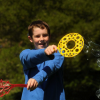
Wind Mapping with Bubbles
Source Institutions
Discover the wind's direction using bubbles, a map and a keen eye. Learners blow bubbles and note their general direction on a map, taking readings from different points around a building.
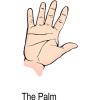
Right Hand/Left Hand
Source Institutions
In this activity (1st on the page), learners conduct a series of tests to find out which of their hands is more dominant. In other words, are they right-handed or left-handed?
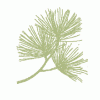
The Blindfolded Walk
Source Institutions
In this activity, learners work in teams to study the observation skills essential to scientific research.
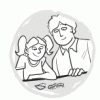
Take a Hike!: A Family Forest Walk
Source Institutions
In this family or group inquiry activity, learners use their senses to explore a local forest or woodland.
Pace-Off!
Source Institutions
In this math activity, learners use non-standard measurement (paces) to find the distance from one point to another. Learners practice estimating and measuring distances .
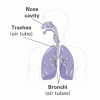
Heart and Lungs
Source Institutions
In this environmental health activity, learners investigate their breathing and pulse rates, and learn how these measurements are affected by physical activity.

Jump Like a Frog
Source Institutions
In this math activity, learners jump and measure how far they can jump on different surfaces using different jumping techniques.

How Big Were the Dinosaurs?
Source Institutions
In this activity (located on page 4 of PDF), learners gain insight into the actual size of dinosaurs and practice making estimations and measurements.
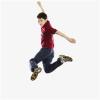
Stepping Out: Hop, Skip, Jump
Source Institutions
In this activity, learners explore and experiment how we can use our bodies everyday to get from one place to another.
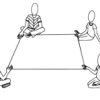
String Shapes
Source Institutions
In this activity, learners work together to make polygons (many-sided shapes) with string. Learners sit on the floor and hold onto a piece of string slid between their thumbs and index fingers.
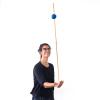
Balancing Stick
Source Institutions
In this quick and simple activity, learners explore how the distribution of the mass of an object determines the position of its center of gravity, its angular momentum, and your ability to balance it
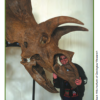
Supersize That Dinosaur
Source Institutions
In this activity, learners explore the size and scale of dinosaurs. Learners listen to "The Littlest Dinosaurs" by Bernard Most. Then, learners estimate the size of a Triceratops and T.
Sock Garden
Source Institutions
In this activity (located in the middle of the page), learners start a garden by planting their socks!
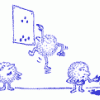
Look Mom, No Wings!
Source Institutions
In this activity about flight, learners explore how high they can jump. Learners dip their finger in ink or dirt, then jump as high as they can and mark paper attached to the wall.
Building Houses: Build a Cardboard Tube House
Source Institutions
Build a house you can fit inside, using cardboard tubes.
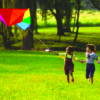
How Active Are You?
Source Institutions
In this activity, learners explore what is and is not active play and how it contributes to a healthy body and mind. Making active play a routine part of every day is a key concept of the experience.
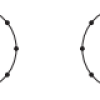
Traveling Networks
Source Institutions
In this geometry activity, learners explore networks painted on playgrounds, such as a four square court, and draw their own.
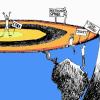
Earth Walk
Source Institutions
In this hands-on and feet-on excursion, learners take a science walk to visualize the planet's immense size and numerous structures, without the usual scale and ratio dimensions found in most textbook
Splitting White Light
Source Institutions
In this optics activity, learners split white light into all its component colors using three household items: a compact disc, dishwashing liquid, and a hose (outside).
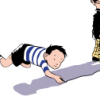
Shadow Play
Source Institutions
In this three part activity, learners explore and experiment with shadows to learn about the Sun's relative motion in the sky.
